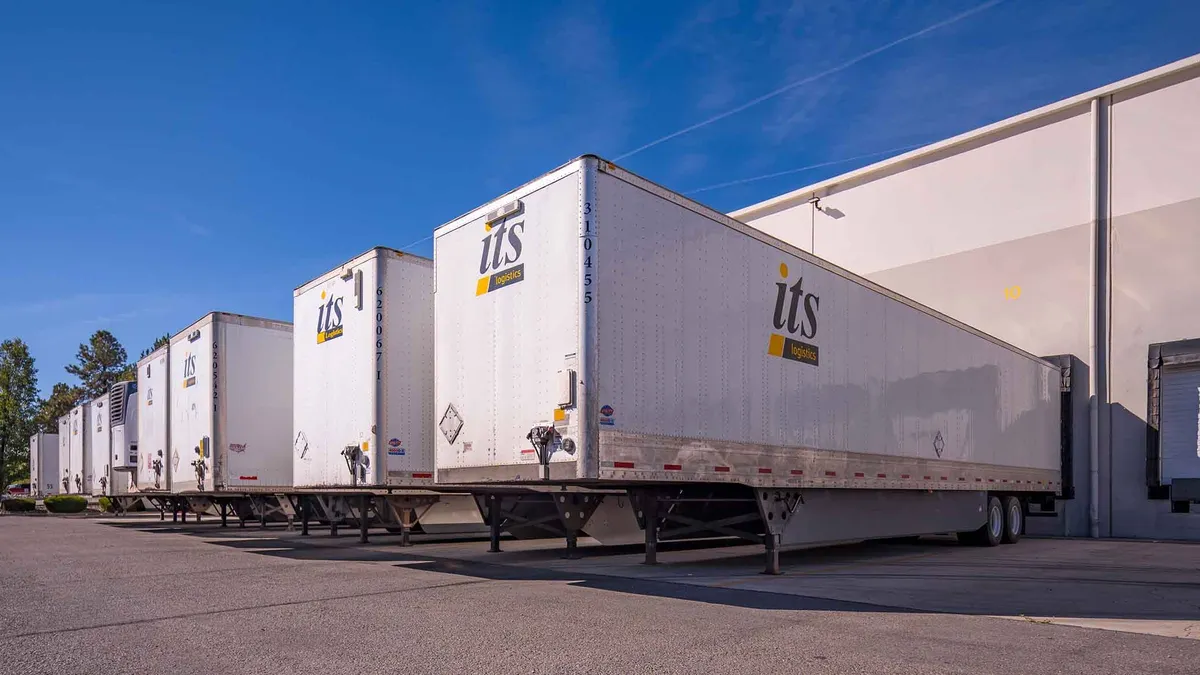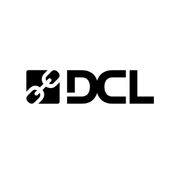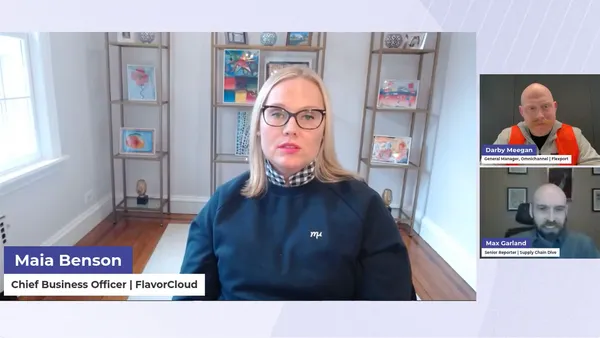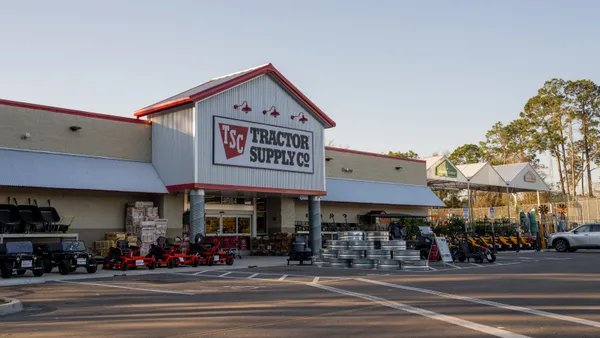Dive Brief:
- ITS Logistics' newly launched Retail Logistics Hubs will tap into the 3PL’s broad network of transportation and carrier partners to serve its retail customers, Kasia Wenker, VP of solutions engineering, told Trucking Dive. The goal is to help retailers combat tariff volatility and meet consumer expectations for speedy delivery.
- When freight moves inbound to a hub, suppliers can send products through port or rail ramps or upstream distribution centers using a mix of ITS-operated assets, such as drop trailer pools, vetted truckload and LTL partner carriers, Wenker said in an email.
- Outbound delivery can also use a mix of options, including parcel carrier shipping directly to consumers for fast e-commerce delivery, Wenker said.
Dive Insight:
With a combination of its own assets, partner carriers, distribution hubs and other 3PL services, ITS Logistics is using its services to appeal to shippers with varied needs.
ITS Logistics' flexible transportation trucking model allows it to scale rapidly, manage seasonal surges, and deliver cost-efficient nationwide coverage, Wenker told Trucking Dive. The balance is critical for retail where there could be a mix of smaller orders, faster replenishment and omnichannel needs that require flexibility and reliability.
“Unlike asset-heavy carriers, we can flex to demand patterns. Unlike pure brokers, we maintain deep operational control and accountability by utilizing a highly vetted carrier network and industry-tailored fraud prevention SOPs,” Wenker said.
The logistics company is capturing an opportunity in the market as shippers face tariff volatility and seek speed and consistency.
“By positioning inventory closer to end customers, we reduce fulfillment times and give retailers the agility to adapt to these evolving demands through a resilient, nationwide distribution model,” Wenker said. The Hubs’ locations put brands within a two-day reach of 95% of the U.S. population. Shippers adjusting their operations in response to tariffs, along with shifting consumer behavior, has prompted the need for leaner inventories.
Other carriers also offer third-party logistics services alongside their asset-based fleets in an effort to stay relevant and competitive with shippers. For instance, Schneider National saw lower volumes in traditional brokers given the shift towards more asset-based solutions, such as power only, per a Q2 earnings call.
Power only is when a carrier provides the truck and driver to move a pre-loaded trailer arranged by a shipper. "In fact, power only set an all-time high for second quarter volumes growing year-over-year for the sixth second quarter," CEO Mark Rourke said in the call.















